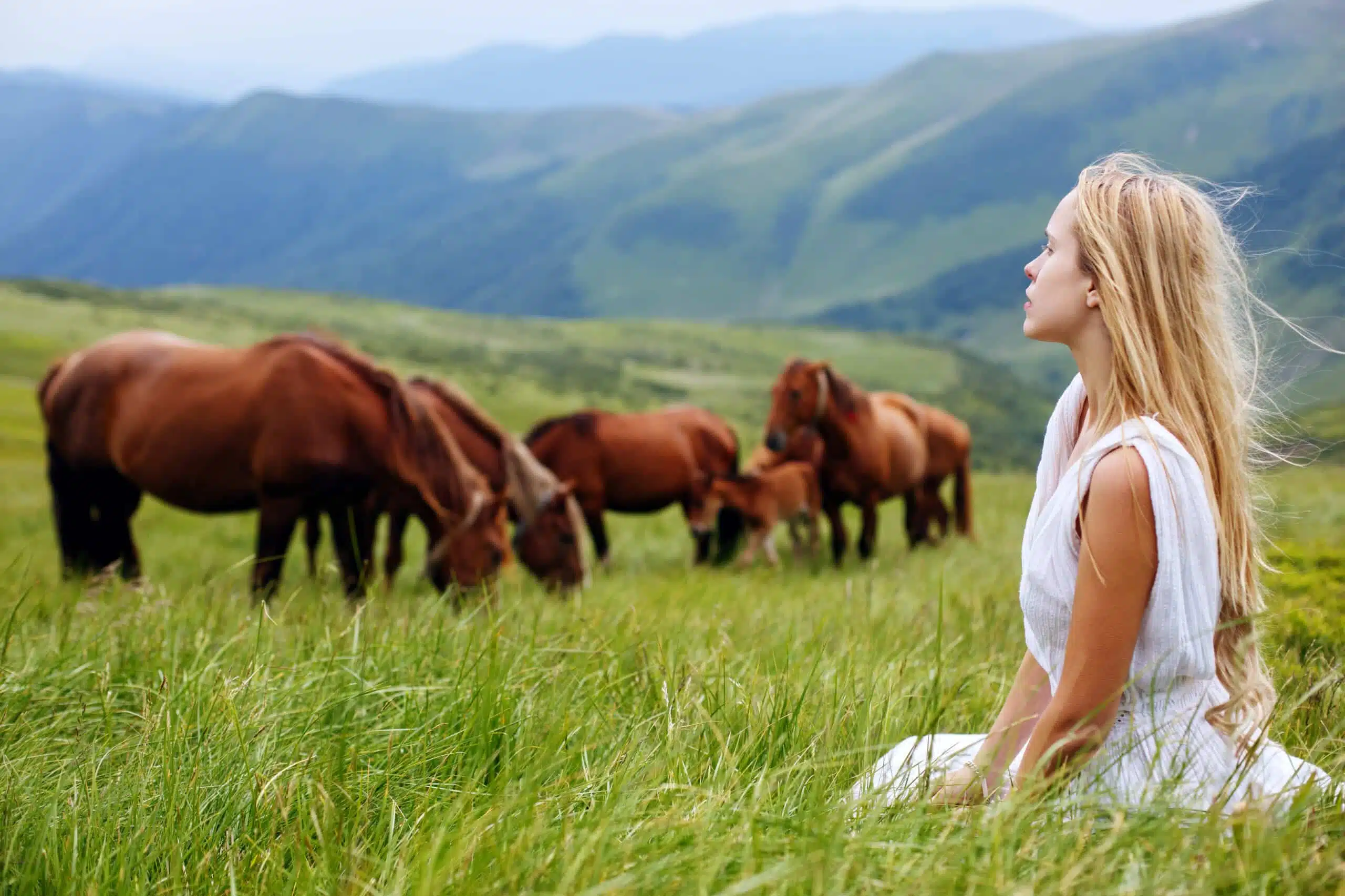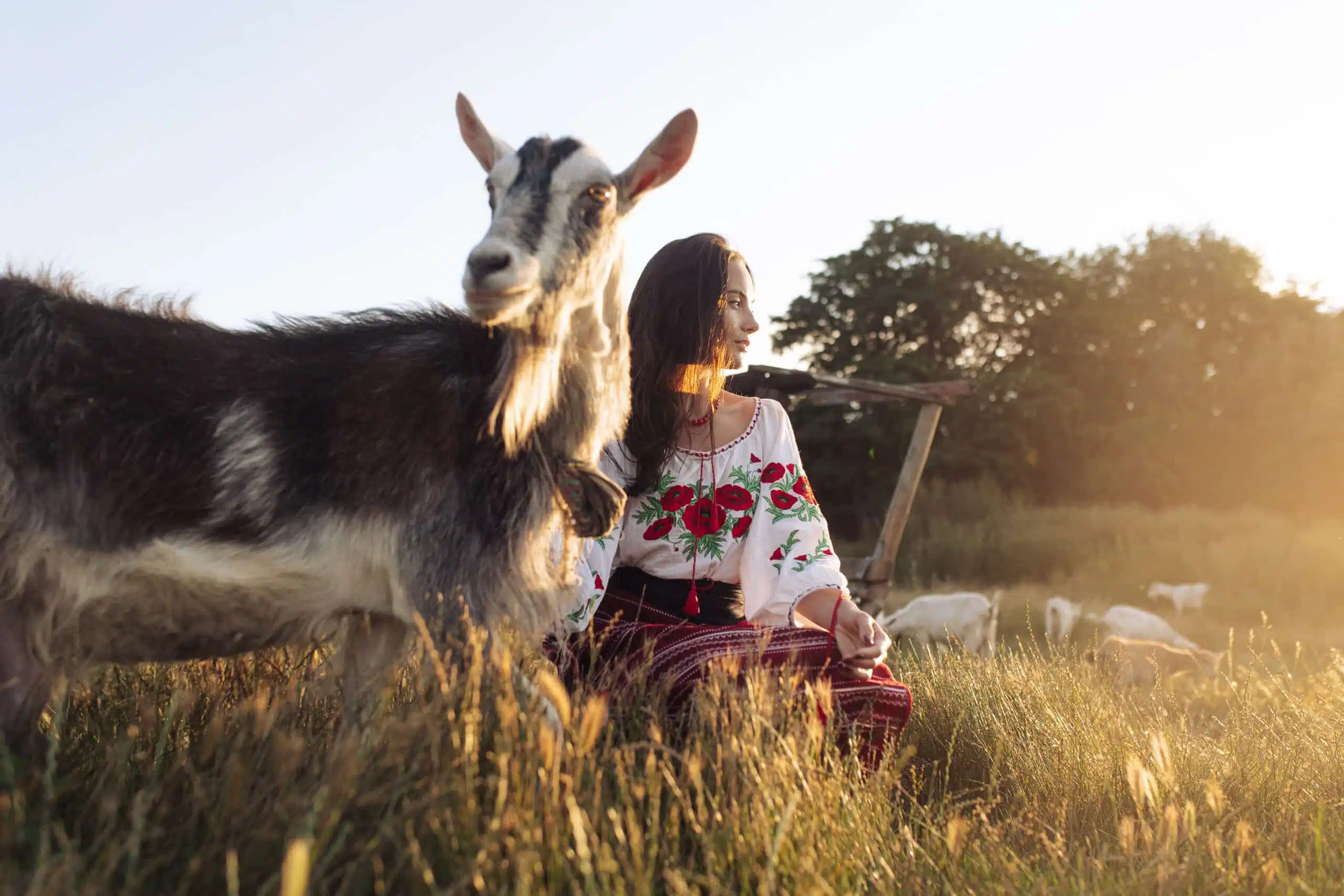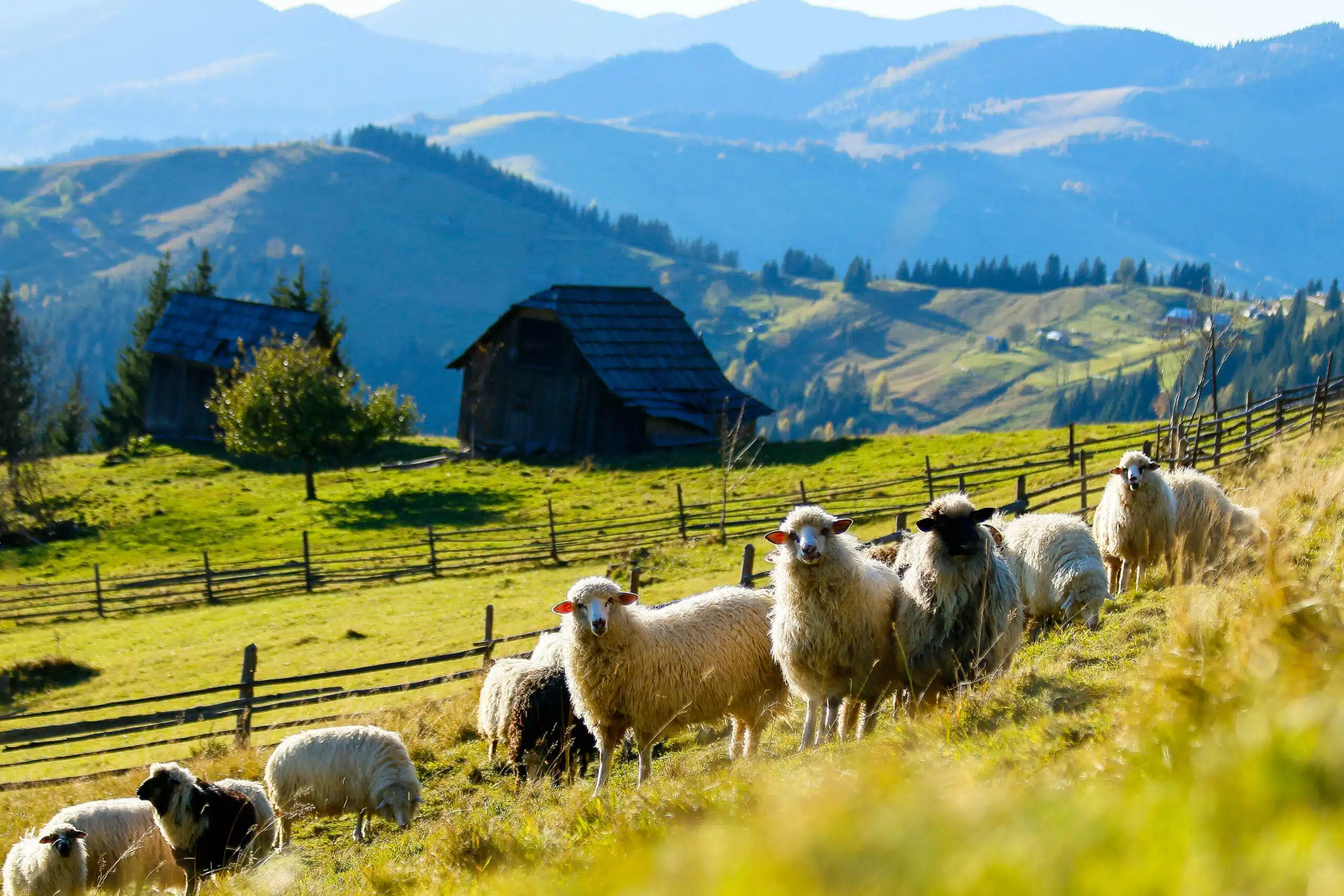Here’s what the Bucolic poetry form is:
Bucolic poems, depending on perspective, are either a subcategory of pastoral poems OR a synonym for pastoral. (It’s a bit of a gray area.)
The most noteworthy examples of bucolic verse tend to idealize rural living as an aesthetic rather than as a lifestyle, with more appeal for the upper class.
So if you want to learn all about the Bucolic poetry type, then you’ve come to the right place.
Let’s get right to it!

Forms of Poetry: Bucolic

Bucolic poetry is an uncommon term that can be seen as either a synonym for pastoral poetry or a particular subgenre of pastoral poems.
This article will be exploring bucolic poetry as its own subgenre, but the reader should keep in mind that even scholars of some renown have used bucolic and pastoral interchangeably at different points in time.
Bucolic verse, in an old sense of the term, refers specifically to a type of pastoral poem that idealizes rural life not for its humility but as a pastime for the upper class, specifically.
There have been other ways to distinguish the two terms, but this dichotomy between poems about wealthy rural living versus poems about humble rural living is the most extreme and interesting distinction that I’ve seen proposed.
Just like pastorals, the bucolic poem is more of a genre (or in this case subgenre) than it is a form.
As such, there is no set rhyme scheme or meter, though the poet is free to impose those limitations on his or her poem as desired.
Basic Properties of Bucolic Poems

| Rhyme Structure | Varies |
| Meter | Varies |
| Origin | Ancient Greece |
| Popularity | Usually referred to as pastorals instead; which are still common today |
| Theme | Rural living; especially as an aesthetic |
What Are Bucolic Poems About?

The most iconic examples of bucolic verse are Virgil’s 10 Eclogues.
Eclogue, itself, is yet another name associated with pastoral poems (specifically short ones).
These poems describe people of class and refined taste living amidst their vast, natural fields.
“Bucolic” is actually a Greek term for a herdsman, and the term has often been associated with cows as a result.
Some scholars even argue that the difference between a pastoral poem and a bucolic poem is that a pastoral will be more likely to focus on shepherds while a bucolic will lean toward cowherds.
Of course, having separate terms for poems about cow-tenders and poems about sheep-tenders is about as ridiculous as it sounds, so there’s an understandable desire to find some deeper divide between the two terms.
Words like eclogue, bucolic, and pastoral are relics of a time when farming and living in nature were a far more universal experience.
It may seem strange that so many terms (and more) exist just to describe poems about farming, but we have to recognize that these were extremely popular topics in poetry for a very long time throughout human history.
The idea of the “ideal” rural life hasn’t completely faded even in the modern day. While it’s slightly antiquated at this point, the TV show “Green Acres” was an excellent example of the bucolic theme applied to a more modern piece of media. (With a comedic twist.)
In this 60’s sitcom, a big-city attorney and his wife move into the countryside, chasing the traditional fantasy of the peaceful farm life.
This idea of successful people “retiring” into a farm setting has been around since the beginnings of urbanization, so this show and other pieces of media like it can be thought of as modern callbacks to the bucolic theme.
Example of a Bucolic Poem

My tea tastes sweetest on the slopes
of the mountain’s lovely basin,
where my sheep and cows can roam
with nary a moment wasting.
Watch the farmhands do their work,
glistening in the light of achievement.
Look with envy on my ivory porch,
free of any and all bereavements.
This, to me, is grandest luxury,
my life here on grasses green.
Retire with me to the countryside
and you’ll know just what I mean.
The above example specifically focuses in on the idea of the retired wealthy landowner.
While a bucolic poem doesn’t necessarily need to have a speaker quite as laid back and uninvolved as this one, I wanted to make the divide between the typical pastoral and the bucolic as clear as possible.
The speaker here isn’t idealizing the hard work and natural way of living, so much as he is the aesthetic appeal of rural living.
The poem also turns the sheep versus cows debate on its head by referencing both in one poem. (This is also one reason that the sheep versus cows definition doesn’t really work.)
Just to be clear, the line between what constitutes a pastoral and a bucolic is actually pretty blurry in the modern era and it seems like we’ll probably be able to retire words other than pastoral as time goes on, at least in popular usage.
Nonetheless, a bucolic poem is, at least for now, technically a distinct subgenre of pastoral poetry, even if it’s a hazy one.
Tips for Writing a Bucolic Poem

A bucolic poem will inevitably hinge on how you interpret the term itself.
Do you prefer to think of it as a term that references specifically cowherds, specifically wealthy farmers, or specifically wealthy cowherds?
In any case, the poem will ultimately follow much the same formula associated with pastoral poems.
Put an emphasis on setting and imagery, insofar as to at least describe the rural area with some sense of depth.
Your reader should be able to envision an idyllic, quiet countryside.
If your main character is from the upper class, then maybe the poem will feature the quiet clinking of wine glasses at a country club overlooking a valley.
Perhaps you’ll find some way to integrate modern concepts into your poem, for a fun contrast between the computer age and traditional country living.
I would be remiss in my duties if I didn’t bring up the elephant in the room, though.
Even if you do know the tiny, intimate differences between the terms “pastoral” and “bucolic,” you’re going to attract more readers if you just call your poem a pastoral.
Modern readers absolutely do not know (or care) about the difference between the two terms, and even scholars are forced to admit that they’re practically synonyms.
Just think of a bucolic poem as an interesting way to write a pastoral poem.
The last thing you want is to post your poem that you worked tirelessly on, only for people to see a word they don’t recognize and scroll right on past it.
People know what a pastoral is.
The words are so similar that it’s hardly worth riding the sinking ship, so just call your poem a pastoral and be smug in the knowledge that you know it’s technically a bucolic poem.
Poet’s Note

I do apologize to the five or six people on earth that might want to revive this term, but I do honestly feel that English often holds onto its antiquated synonyms a bit too long for its own good.
Bucolic is a cute addition to the dictionary, but it doesn’t accomplish much in practice that you can’t achieve with the more widely known term.
Comprehensive Collection of Poetry Forms: Craft Words Into Art

Dare to traverse the entire spectrum of poetic forms, from the commonplace to the extraordinary?
Venture from the quintessential Sonnet to the elusive Mistress Bradstreet stanza, right through to the daunting complexity of Cro Cumaisc Etir Casbairdni Ocus Lethrannaigecht.
For those with a zeal to encounter the full breadth of poetry’s forms, this invitation is yours.
Start exploring the vast universe of poetic ingenuity with our comprehensive array of poetry forms right now!
